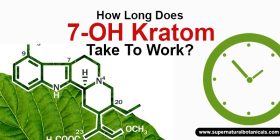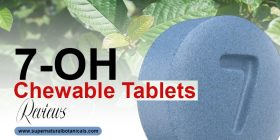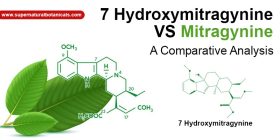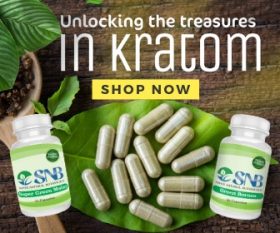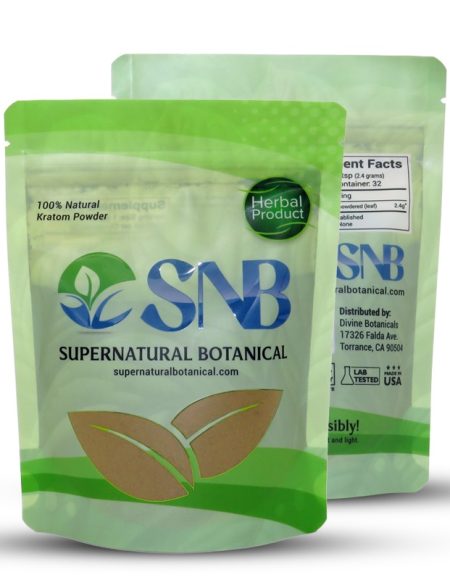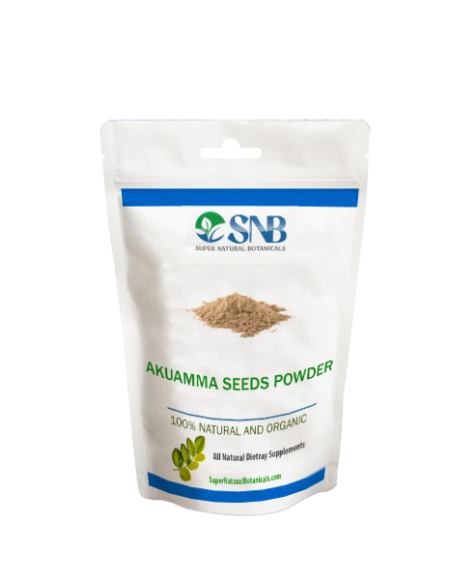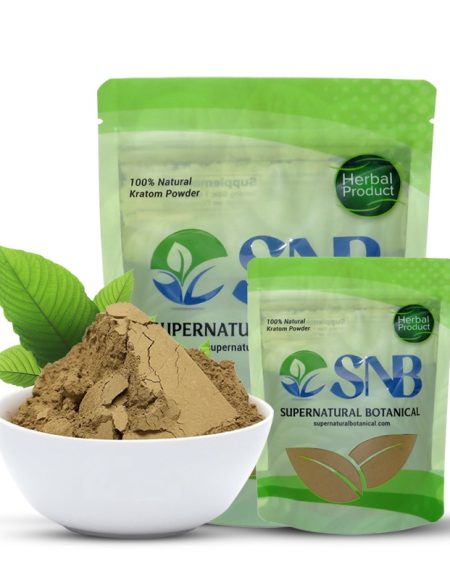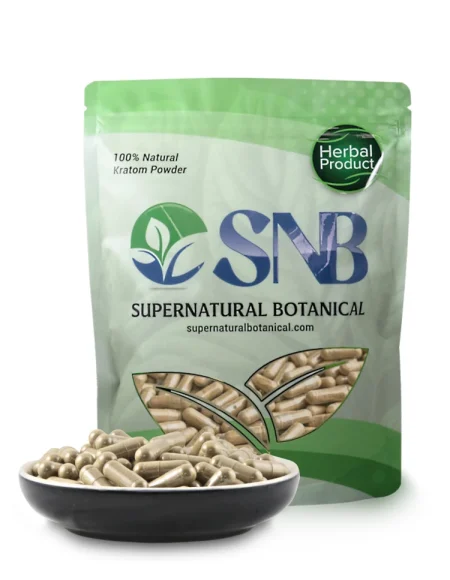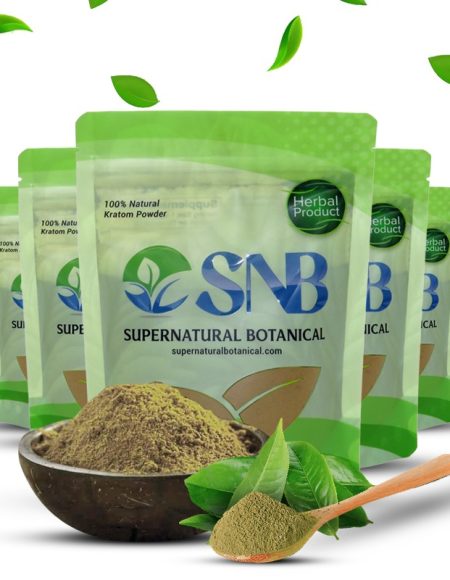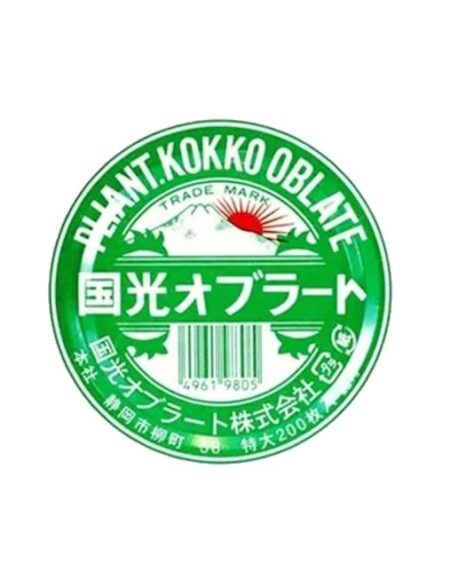It is not a shock to know that Kratom capsules are becoming a household name. Their purported therapeutic and recreational benefits have created a lot of buzz.
As modern research unveils, more and more people have started using it as nutritional support for the body to treat everyday problems. And the use of the trendy supplement extends pretty much beyond that. It is promoted as a boost for bodybuilders after an intense workout. It is cherished for rendering unmatched euphoria and relaxation without impacting the mind, a starter that ignites the daily feats of active individuals and forms a star ingredient of the exhausted moms and working women’s daily regimen.
Table of Contents
Mitragayna Capsules can be broadly divided into two types: Kratom Gelatin capsules and Vegetarian capsules. But what’s the difference between the two? Following, we have shed light on the basics of each type and the pros and cons.
What Are Gelatin Capsules?
As the name suggests, the capsules are made of Gelatin which is essentially a degraded version of collagen. The latter is the main structural protein present throughout the body, playing a vital protective role. It is found in abundance in the connective tissues, particularly the animal skin, bone, and tissues. Gelatin commonly exists in a translucent, brittle, odorless, tasteless solid with either little to no color or a yellowish tint.
Do you know the collagen used to make gelatin capsules comprises eighteen different kinds of amino acids?
This explains why Speciosa gelatin capsules boast higher protein content. It is a complex mixture of peptides and proteins, generally extracted from beef, pork, or chicken. The gelatin is then processed into capsules, which are tough but brittle. From aiding with digestion and easing physical discomfort to managing blood sugar, improving sleep patterns, and enhancing cognitive functioning, it’s little wonder why it is the topmost choice for Kratom manufacturers.
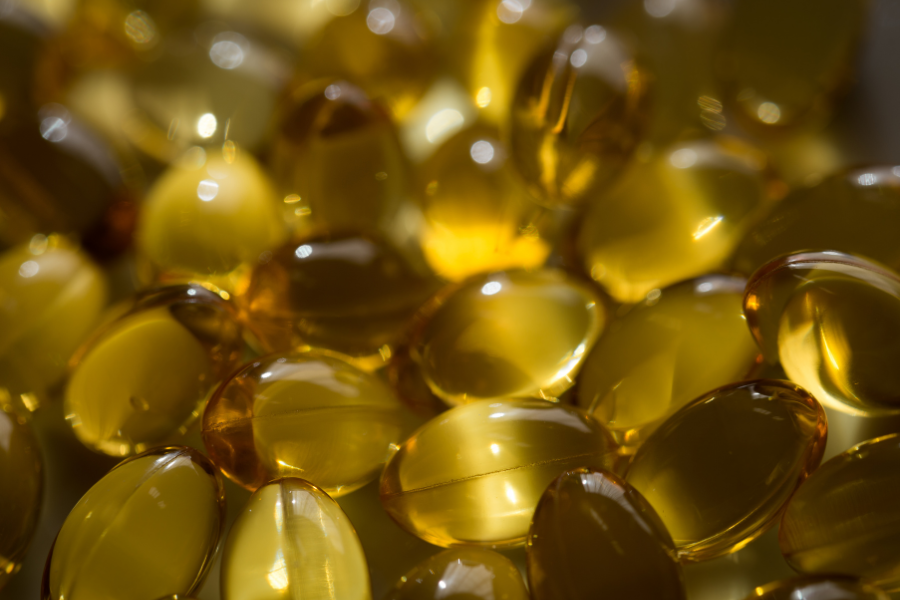
Types of Gelatin Capsules
Promising a plethora of health benefits, Kratom gelatin capsules have long been the global preference for the Kratom community. Commercially, these are available in two forms:
Hard Gelatin
Also commonly referred to as the hard-shell Kratom gelatin, are the two-piece capsule form ideal for encasing solid dosage formula or nutraceuticals within a small shell. One or more medicinal agents and inert materials are enclosed, such as dry powder or very fine pellets.
Soft Gelatin
Soft gels or soft elastic capsules are used in a single-piece hermetically sealed capsule. They are the more flexible ones with gelatin film plasticized by the addition of glycerine, sorbitol, or a similar polyol to hold liquid or semi-solid. They are administered orally through a range of distinct delivery systems such as chewing, sucking, melting, or twisting off.
How Are Kratom Gelatin Capsules Produced?
Industrial gelatin production primarily follows a three-step process.
Pretreatment
First and foremost, the raw materials (animal skin, bones, and tissue) are subjected to an acid or alkaline treatment where they are soaked in vats of acid for approximately five days. This removes calcium and bacteria and makes the collagen extraction process a breeze. Next, it undergoes a thorough treatment with hot water to remove fats.
Extraction
Based on the raw material, acid or alkali is used to extract collagen, then loaded into aluminum extractors and thoroughly boiled in distilled water.
Refining
Once the gelatin is extracted, it is passed through machines and pressed into fine sheets or ground into powder- depending on the intended application. Besides, a series of steps are conducted, such as filtration, evaporation, drying, grinding, and sifting. This is also the stage where flavorings, sweetening, and colorings are added to refine the final product.
What Gelatin is used in capsules?
Depending on the target market, manufacturers generally choose between various raw materials to produce gelatin capsules. However, most of them are derived from bovine (beef) or porcine (pork), or a combination of the two.
Pros of Kratom Gelatin Capsules
Kratom connoisseurs overwhelmingly prefer taking their daily intake in the form of gelatin capsules over other tablets. But why is that so? Let’s explore the reasons:
- High-Quality: Not only are capsules easier to swallow, but users also find comfort in the transparency of ingredients. Yes, in the case of gelatin capsules, it is easier to assess that the constituents are all safe and natural.
- Much Cheaper: Another advantage of gelatin capsules is their cost-effectiveness. They are an affordable option compared to other forms of Kratom on the market, and you can buy them without as much as digging a hole in your pocket.
- Vast Variety: These capsules come in all sorts of sizes, shapes, colors, and flavors you can think of. This explains why they appeal to a broader population.
- Adapts Well to Dry Formula: Gelatin capsules generally work well for most powdered drug formulations the like of Kratom, and hard gelatin is especially ideal for encasing nutraceuticals of all kinds.
Cons of Kratom Gelatin Capsules
While gelatin capsules are generally preferred by consumers and manufacturers alike, they do not come without their own set of disadvantages.
- Animal-derived Ingredients: A significant drawback with gelatin capsules is that they are made of animal-based products. This makes them unsuitable for people with specific dietary restrictions. Plus, many staunch religious individuals are reluctant to consume it on religious grounds.
- Limited Capsule Dosage: Gelatin capsules are also available in a fixed number of sizes, while tablets are generally found in a greater variety. So while the recommended kratom dosage may fit into one tablet, it may require more than one capsule to accommodate the same quantity.
- Less Compatibility with Liquid Formula: Another critical factor to weigh when deciding between Gelatin and other capsules is the filling being used. Liquid and gel Kratom are incompatible with gelatin capsules as water can degrade the shell. Thus their usage is limited to only powdered drug formulations.
Are Kratom Gelatin Capsules Bad For You?
A lot of people live under the impression that gelatin can adversely impact their health. While this is a fear of many, let us clarify: gelatin capsules are perfectly safe for human consumption (now repeat).
They are extremely high quality as gelatin manufacturers have to abide by strict quality requirements and regulations. Also, the protein found is the one we consume quite often in our daily diet.
Vegetarian Capsules
Pro-veggies dominate the modern era. Demand for veg products is soaring. So how can the pharmaceutical world be spared?
While fish gelatin can serve as an alternative for individuals who don’t wish to consume beef or pork, there is still a significant need for a completely plant-based alternative for all the stringent vegan and vegetarians out there. This kick-started research into plant-based collagen in 2011. Thankfully, there is little success in finding a solution through self-assembling peptides in the form of a replicated organic structure. Non-toxic cellulose is now commonly used to make vegetarian capsules that are 100% natural and pose no health hazards.
What Are Vegetarian Capsules?
As the name indicates, there are no animal by-products in vegetarian capsule production. They are clear caps derived from important plant-based structural components. Hence, they serve as an excellent alternative to gelatin ones. Also known as veggie caps, there are currently two types available in the market.
- HPMC or Hydroxypropyl methylcellulose: These are composed of cellulose, a thick, fibrous plant by-product.
- Pullulan: These are made from the extracts of tapioca roots.
Both are easily dissolvable and digested by our bodies and are compatible with most powdered, liquid, and gel drug formulations.
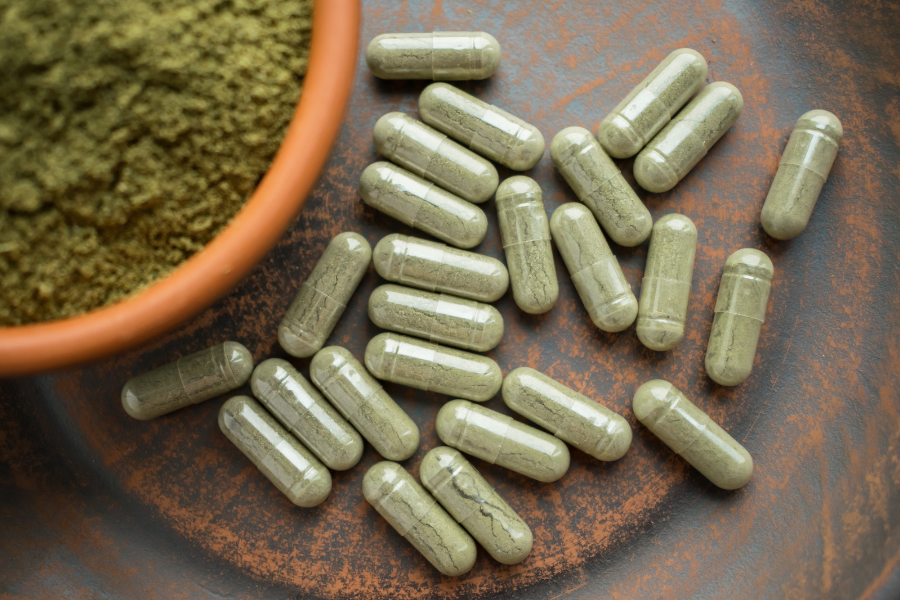
Pros of Vegetarian Capsules
- Kosher and Halal certified: Vegetarian capsules are simply an absolute hit amongst individuals who cannot consume gelatin capsules. For example, Muslims and Jews are forbidden from consuming pig by-products. Likewise, the Hindus are religiously advised to stave away from cow meat. Besides, veggie capsules are a necessary option for die-hard vegans or vegetarians and people allergic to meat or other animal products.
- Large Customer-base: The most obvious win for vegetarian capsules is how they are accessible to a wider range of people, including those limited by health conditions or religious and personal dietary restrictions. This makes them attractive to a larger, more diversified audience.
- Diverse Applications: Like gelatin, veggie Kratom capsules can also be manufactured in a variety of funky colors, shapes, and sizes to make them suitable for a variety of uses.
- Safer and Non-toxic: Vegetarian capsules also take the lead when it comes to safety and efficacy. They have no potential health risks. They are non-toxic, 100% naturally produced, and completely safe to consume even for prolonged use.
- Suitable for Various Formulations: Regardless of the formula, gelatins caps are sure to show their magic- whether it is a solid, semisolid, aqueous, or extract-based speciosa. They are sure to handle all.
Cons of Vegetarian Capsules
- More Expensive: Since they are made with special ingredients, the cost of production for vegetarian capsules is much higher.
- Less Variety: Some consumers also prefer tablets over these capsules since tablets are manufactured with a greater variety in size.
- Compromise on Health Benefits: Vegetarian Kratom has taken the medicine market by storm. They are now a prominent commercial offering for capsule filling, available in all sorts of sizes and shapes. While they certainly serve as a helpful alternative to gelatin ones, it’s important to remember that people choosing to stick to this capsule form only will not reap the health benefits provided by the latter, such as boosting digestion and easing physical discomfort.
Key Takeaway
When kratom capsules will take the place of conventional synthetic, and over-the-counter medications in our cabinets is not far. Both gelatin and vegetarian Kratom capsules serve the same purpose and can be used interchangeably for most formulas.
Perhaps, the only real difference between the two is how vegetarian capsules fill the void for individuals who cannot consume gelatin or animal by-products for any reason. After all, this must not debar you from experiencing the miracle benefits of the plant.
The following Table excellently summarizes the difference between the two:
| Gelatin Capsules | Vegetarian Capsules | |
| Animal-Based Ingredients | Yes | |
| Plant-bases Ingredients | Yes | |
| Cost-Saving/Cheaper | Yes | |
| Halal and Kosher-Certified | Yes | |
| Liquid and Gel Formula | Yes | |
| More Variety | Yes | |
| Healthier | Yes | |
| Safer and Non-Toxic | Yes | |
| More Capsule Capacity/Dosage | Yes | |
| Higher Quality | Yes |
Before filling any shell with Kratom, manufacturers need to understand their intended market and identify which one of the two their customer base is likely to prefer. Another crucial factor to consider is whether the capsule material and drug formulations being used are compatible. For example, aqueous drug formulations are unsuitable for filling gelatin capsules but work well with veggie-based. Rest assured, both forms are quite well-received by customers.
Which one of the two have you tried and will recommend to others? Leave a comment below and share your experience with us.






